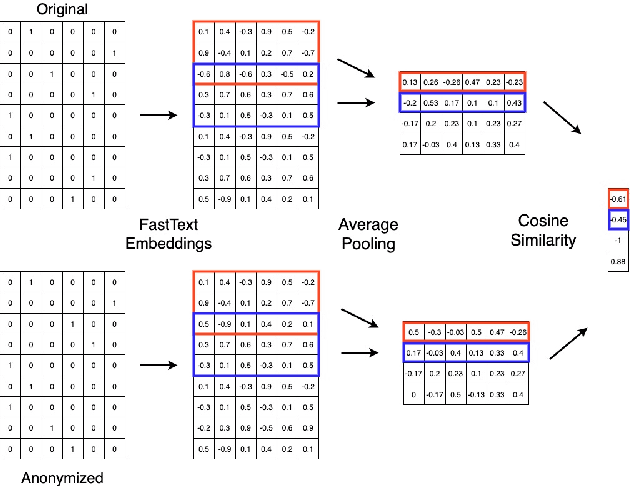Rishi Balakrishnan
Protecting Anonymous Speech: A Generative Adversarial Network Methodology for Removing Stylistic Indicators in Text
Oct 18, 2021



Abstract:With Internet users constantly leaving a trail of text, whether through blogs, emails, or social media posts, the ability to write and protest anonymously is being eroded because artificial intelligence, when given a sample of previous work, can match text with its author out of hundreds of possible candidates. Existing approaches to authorship anonymization, also known as authorship obfuscation, often focus on protecting binary demographic attributes rather than identity as a whole. Even those that do focus on obfuscating identity require manual feedback, lose the coherence of the original sentence, or only perform well given a limited subset of authors. In this paper, we develop a new approach to authorship anonymization by constructing a generative adversarial network that protects identity and optimizes for three different losses corresponding to anonymity, fluency, and content preservation. Our fully automatic method achieves comparable results to other methods in terms of content preservation and fluency, but greatly outperforms baselines in regards to anonymization. Moreover, our approach is able to generalize well to an open-set context and anonymize sentences from authors it has not encountered before.
 Add to Chrome
Add to Chrome Add to Firefox
Add to Firefox Add to Edge
Add to Edge